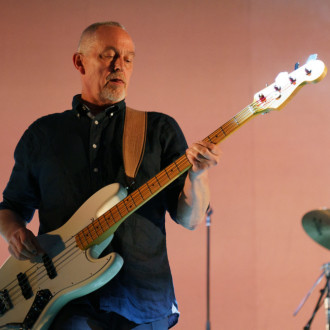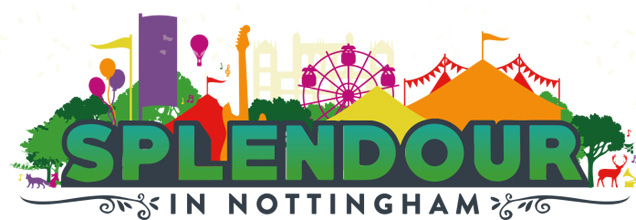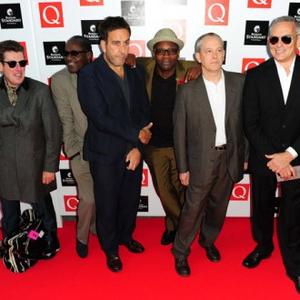Review of Specials, More Specials and In The Studio (Remastered Editions) Album by The Specials
There have been moments - they're becoming increasingly rare - in which music as an art form wraps itself into the absolute contours of society, perfectly mining the cultural tempest of the moment until a song becomes more indelibly linked with a space of time than the events themselves.

Such a collision happened in the summer of 1981 as The Specials released 'Ghost Town', a single into which the band injected all the melancholy, foreboding and despair which the government of Margaret Thatcher had rained down on carefully targeted sections of British society. As it played, the streets of many of Britain's inner cities burned; accompanied by a highly cinematic video shot in the then mainly derelict areas of London's East End, it proved to be the apex moment for a band who were frequently cast in the mould of lippy hedonists.
'More Specials', their second album and the one which preceded 'Ghost Town' in the septet's brief chronology, implied in its title a degree of continuity from their eponymous début, released in 1979. With a new decade around the corner, this was a time when they and the Two Tone label briefly annexed the charts with a brand of amphetamine laced Ska that presented a more carefree alternative for the country's youth than the immolating final throes of punk. Closer inspection, however, reveals otherwise and, by peeling back three decades of nostalgia, the band's second outing is a slightly haphazard, far more introverted proposition than its more straightforward forebear.
Not that The Specials were ever really as mono dimensional as the passing of time has subsequently painted them. Emerging from the concrete, brutalist landscape of Coventry in 1978, lead singer Terry Hall modelled himself on the already iconic John Lydon, an admirer of his anti-stagecraft and dead panned apathy. Songwriter, keyboard player and founder Jerry Dammers leaned heavily by contrast on a concoction of soul and reggae, splicing it with the ribald energy of punk to create the sound which their own record label ended up giving its name to.
Honed on the live circuit and with the feeling of almost a revue, the band's first album soldered all their elemental chops together into a tight, intoxicating whole. Opener 'Gangsters' is as endorphin generating then as now, Hall's atonal croon and its shoulder dipping rhythmic chug undiminished by time. Marginally incongruous, when compared with some of the other material, it served to underline their rapid evolution: a handful of covers ('Rudy', 'A Message To You', 'Monkey Man' and a largely charisma free 'Do The Dog') meeting the hyper extended lilt of heroism free victim/subjects such as those of Nite Klub and, most coruscatingly, the hapless teenage mum of 'Too Much Too Young'. Perhaps the key to The Specials' early appeal was this ability to proselytize the struggles of those trapped in dead ends of their own making, all played out at a chunked up velocity which would help the same downtrodden audience dance the foreboding sensation off, if only temporarily.
Two years later, 'More Specials' was only partially true. Dammers had discovered the mixing desk as a production tool and rather than arriving in the studio with songs in bag, this time the band met the prospect of writing fresh material head on. Opening with the cautionary reel of 'Enjoy Yourself', if anything the cast of characters that followed were even more uncomfortably awkward than before: the old woman lost in her cups of 'Pearl's Café', the man-adolescent stuck in a rut of 'Stereotype' and at its meanest, the sordid débutante turned porn star of 'Hey, Little Rich Girl'. Not much of this was the stuff of pop (Not that the band had ever been much more than reluctant role models for that) but their highly episodic output felt both caricatured and yet full of pathos, whilst musically Dammers was exploring far less simplistic themes.
In many ways, The Specials' history was an archetypal one of many bands' progression, but in extremis: the first album, confident, focussed, gig hardened, the second a less streamlined smorgasbord of old and new ideas. The cliché of course is that the third one is always the hardest and that, on many occasions, sounds like it is produced by a different band, which of course in the case of 'In The Studio', is completely true. Years of touring and Dammers' increasingly controlling personality provoked tensions that were unbearable for everyone: Hall, Lynval Goulding and Neville Staples planned their escape for months before becoming the sarcily named Fun Boy Three. Now Special AKA, with 'In The Studio' Dammers and a clutch of hired hands delivered a work so far away from the band's original premise that their label refused to promote it.
Listening back, this reaction seems more than a little knee jerk, although you can sympathise with any suit on hearing 'The Boiler' for the first time, former Bodysnatchers singer Roda Dhakar laconically playing back a confrontation story about insecurity and ultimately, ugly sexual violence. Even now it's a highly uncomfortable listen which will have tapered the bands' former audience into mostly confused deserters and equally horrified radio station playlisters. And yet as deliberately estranging as that was, there's much else here to love, from the enlightened sentiment of 'Your Racist Friend' to ultimately one of the decade's most conscious and literate protest songs, 'Free Nelson Mandela'. True, Dammers had taken his pursuit of production excellence to the far horizon, but whilst tunes were in short supply, there's a vibrant sense of go anywhere experimentation and rendering of soul and jazz forms into something which at times - such as on the suitably moribund 'War Crimes' - brushed shoulders fascinatingly with Eastern folk and arty, nuanced free expression.
With hindsight, 'In The Studio' is simply the album no-one wanted to hear as opposed to one which didn't deserve to be. That same 20/20 perspective the brief Ska revival and Two Tone itself to modish failure, whilst ignoring its energy and more human flourishes when juxtaposed against the cartoon thuggery of punk. A band, a label, the focal point of a movement: these weights would be too much for most artists to shoulder for very long. When combined with the exhausting pressure of sustaining chart success and with a competing desire for experimentation causing fissure after fissure, The Specials prognosis was never one for the long term.
The acid test of any of the flood of heritage releases is by subtracting the additional material, packaging and any other frippery and asking yourself simply "Should this record have come out again?" For different reasons, the answer for all three of these is yes. Social historians, street philosophers or the just reminders of a blinder: all the evidence you need for defining The Specials in your own mind is right here.
4/5
Andy Peterson
Official Site - http://www.thespecials.com/






